Medical Family Therapy Internship
This is a 13-month, full-time (approximately 40 hours per week) pre-doctoral internship position for a family therapist trainee interested in learning more about integrated behavioral healthcare, medical family therapy, primary care, and family medicine residency education. The intern will be responsible for providing conventional psychotherapy and integrated behavioral healthcare within a family medicine residency clinic in St. Paul, Minnesota, as part of the St. John's Hospital Family Medicine Residency Program. The intern will engage regularly in hallway and medical chart consultation with medical providers, formal teaching opportunities with family medicine residents, and access to further personal training and cross disciplinary supervision.
Through this, the intern will learn how to collaborate and work with a multidisciplinary team including pharmacy, nursing, social work, behavioral health, and family medicine; understand how care is provided in a primary care setting; provide brief integrated care interventions; learn about chronic disease management and the role of behavioral health; participate in quality improvement projects; and teach medical learners—primarily family medicine residents and medical students (lectures, hands-on activities, and consultations). The position duties are mirrored after those of the director of behavioral health. The intention upon leaving this internship is that the trainee be prepared to work in a variety of settings including integrated behavioral healthcare, primary care, academic medicine/residency training sites, and even private practice with an emphasis on medical family therapy.
Clinical Opportunities and Training
- 40% conventional psychotherapy (individuals, couples, families)
- 40% integrated behavioral healthcare, consults, medical co-visits
- We primarily treat conditions such as:
- Depression, anxiety, PTSD, other trauma
- Stressful family dynamics, parenting concerns, child behavioral concerns
- Trauma and stress related to displacement, immigration, prejudice, racism, acculturation
- Adverse childhood experiences and stressful life events
- Chronic pain, diabetes, hypertension, cancer, caregiver strain
- Interdisciplinary team: pharmacy, behavioral health, social work
- Programmatic courses in community health, psychiatry, and sexual medicine
- Physician faculty interest in geriatrics, adolescents, women’s health, LGBTQ+, sports medicine, chronic pain, and more!
Teaching/Educational Opportunities
- Video reviews/shadowing of residents
- Resident didactics and noon conferences
- Resident wellbeing curriculum
- Assist with behavioral medicine rotation
Formal Training Opportunities for the Intern
- UMN Medical School programmatic courses
Scholarship Opportunities
- Eight hours per week dedicated to scholarship/dissertation writing
- The Department of Family Medicine and Community Health at the University of Minnesota is ranked second in the nation for NIH funding and has a robust centralized research division with connections to various local agencies
- There are eight residencies across the department with 98 faculty with their own research interests
- If the intern chooses to recruit from clinics at the University of Minnesota, a UMN IRB will also need to be completed; there is assistance for this
Important Dates
December 18, 2023: Applications due
February 7, 2024: Interview day
February 27, 2024: Submit rank list
February 29, 2024: Offer(s) extended
Contact Us
Bias Reporting at the University
Submit anonymous incident reports online at BRRN UReport or incident reports can also be sent to endbias@umn.edu.
More about the Medical Family Therapy Internship program
A typical week
| Monday | Tuesday | Wednesday | Thursday | Friday | |
| AM (8-noon) | Precept/Integrated Care | Precept/Integrated Care | Precept/Integrated Care | Patient Care | Precept/Integrated Care |
| Noon (12-1) | Clinic Meeting | Individual Supervision or Group BH Meeting | Group Supervision with Psychology Fellows | ||
| PM (1-4:30/5) | Admin/Home Scholarly | Patient Care | Admin/Home Scholarly | Patient Care | Patient Care |
Where we practice
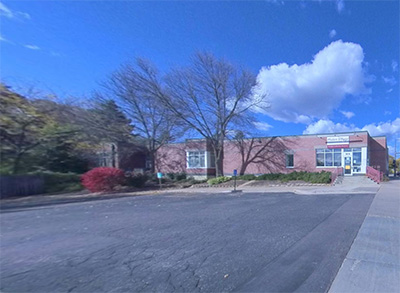
Our primary practice locations are M Health Fairview Phalen Village Family Medicine Clinic and M Health Fairview St. John's Hospital. The clinic is located in east St. Paul, and the hospital is located in Maplewood, a suburb of St. Paul. The pre-doc intern will work primarily at the clinic but also some at the hospital. Other practice locations for our residents include many specialty clinics and community locations around the Twin Cities. Our primary care locations are featured below. Check out our 360-degree pictures to get a feel for where we provide care and the communities we serve.
M Health Fairview Phalen Village Family Medicine Clinic
The clinic is located in a diverse, urban neighborhood in St. Paul. Patients include a well-established, ethnically diverse population, ranging from newborn to geriatric age. Many of our patients are Southeast Asian refugees, immigrants, and non-English speaking.
Our community
Our Community: The Greater East Side
Since 1850, the East Side has been a destination for immigrants and migrants seeking jobs, homes, and new communities. Three distinct waves of newcomers have arrived here, worked hard, established themselves, built institutions, and had an impact on the development of Saint Paul. Set on the hills overlooking downtown St. Paul and the Mississippi River, the East Side is home to delicious eats and deep roots, making it an explorer's destination for culture, cuisine, and history. Our clinic primarily treats patients from Hmong and Karen East Asian cultural groups and a growing East African population. Many of our patients are refugees, descendants of refugees, or immigrants.
Our integrated care team
Behavioral health: providing conventional psychotherapy and integrated care services for individuals, couples, and families addressing a variety of mental, social, and physical health concerns.
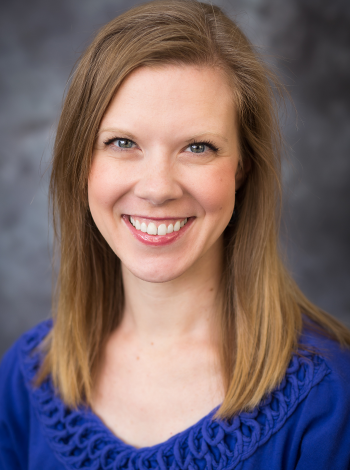
Lisa Zak-Hunter, PhD, LMFT
Assistant Professor, Department of Family Medicine and Community Health, University of Minnesota Medical School
Director of Behavioral Health
Provides conventional and brief psychotherapy, integrated care services, consultations for residents and faculty; behavioral health preceptor for residency program; oversees behavioral health curriculum and residents' second-year behavioral medicine rotation, assists with Wellbeing and Resilience Curriculum.

Tai Mendenhall, PhD, LMFT
Professor, College of Education and Human Development, University of Minnesota
He provides conventional and brief psychotherapy. Dr. Mendenhall's primary appointment is in the Department of Family Social Science at the University of Minnesota. He is the former director of behavioral health at St. John's.
Pharmacy: medication therapy management services
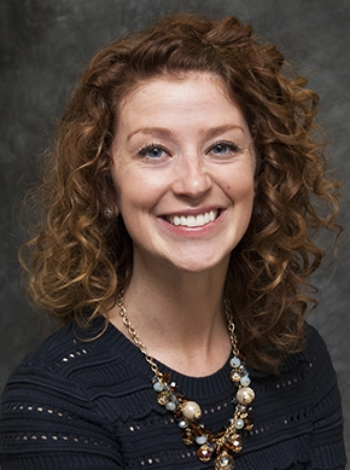
Katherine Montag Schafer, PharmD, BCACP, CDCES
Assistant Professor, Department of Family Medicine and Community Health, University of Minnesota Medical School
Dr. Montag Schafer is a certified diabetic care and education specialist.
She provides chronic disease management, consultations for residents and faculty, and pharmaceutical precepting for the residency program.
Care and social work coordination for people who live/work in settings that put them at increased/higher health risks and would benefit from Healthcare Home services and management
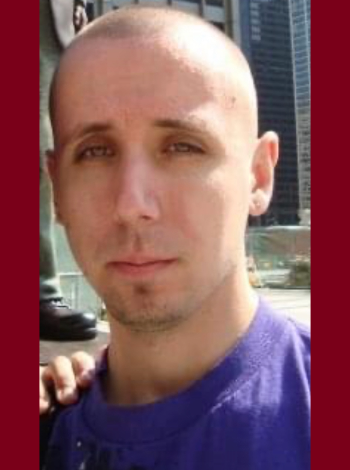
Christopher Ackerman, LGSW, LADC
Chris has experience working in mental health and addiction services. He offers care coordination services, assists with outreach and scheduling of mental health and substance use disorder appointments, and serves a variety of social work needs.
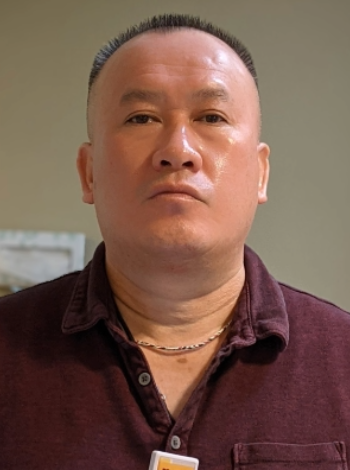
Souk Moua, BSW
Souk offers care coordination services, has a long history of working in our community, speaks Hmong, helps coordinate office follow-ups with our hospitalized patients, and assists with social work needs such as housing, insurance, food insecurity, and county benefits.
Integrated care roles and responsibilities
Behavioral health
-
Residency curriculum
- Behavioral medicine rotation: one month in residents' second year
- Training in adult psychiatry, sexual medicine, addiction medicine, patient-centered care skills, family-centered care, professionalism, mindfulness/meditation, and CBT
- Pre-doc intern will have opportunities to assist with 1:1 teaching of family-centered care, CBT, mindfulness/meditation, and topics of their choice
- Longitudinal curriculum
- Video reviews and live shadowing of residents to address patient-centered care skills, communication, bedside manner, behavior change conversations, working with the medical team, both in clinic and in the hospital
- Resident wellbeing and resilience activities
- Precepting (on-the-spot teaching of family medicine residents when they "check out" their patients to the physician faculty during clinical time) and consultation with resident and faculty physicians
- Didactics: twice monthly, three-hour educational blocks that cover all areas of medicine. There is a set curriculum and approximately two to four of these specifically focus on behavioral health and child development topics annually
- Noon conferences: twice weekly, 30-minute lunch talks. Behavioral health topic monthly.
- Clinical care
- Conventional psychotherapy: We provide care for individuals, couples, and families. We primarily see adults or patients old enough to engage in talk therapy. There are not pre-existing resources for play therapy or to work with very young children. If this is your specialty, we have been able to accommodate, but the intern will need to provide supplies. The majority of care we provide is for mental health and trauma. The Health Behavior Assessment and Intervention billing codes recently became available to LMFTs in Minnesota, so we are working on processes to also provide billable care for healthy lifestyle and chronic disease management. About 40 percent of clinic visits are interpreted, primarily Hmong and Karen languages. There is ample opportunity to learn new ways of providing culturally responsive psychotherapy and working with interpreters.
- Integrated care: This occurs within precepting time and includes scheduled and on-the-fly medical/behavioral health co-visits, warm hand-offs, and consults through the electronic medical record or hallway consults. Topics often include management of crises, depression, anxiety or stress, sleep hygiene, patient education on mental health and trauma conditions, child behavior concerns, chronic disease management, and new disease diagnosis adjustment.
View the University of Minnesota's COVID-19 response and policies
Internship agreements and benefits
- Trainees per year: One
- Length of commitment: 13 months (August 2024 - August 2025)
- Stipend: $41,932.80 (additional with full Minnesota license) for 2023-24 academic year
- Vacation days and federal holidays
- Full health benefits (medical, dental, paid sick leave)
- Optional retirement plans
- Conference stipend of $1,000
- Minnesota license reimbursement
- Up to $1,000 reimbursement moving expenses if clinic is 50+ miles from current location
- One day (equivalent of 8 hours) per week for scholarly work/dissertation writing
- There are ample opportunities to engage in scholarly work and support for dissertation writing, both at the residency and the medical school. Be prepared to discuss these during interview day so we can determine how to best support your needs.
- See OHR Fact Sheet or this page for additional information
Applicant eligibility
- Currently enrolled in a doctoral program for marriage/couple and family therapy.
- Completion of all doctoral-level coursework strongly preferred. May make exceptions for applicants further along in online programs.
- Strongly encourage advancement to doctoral candidacy prior to position commencement.
- Passed National Licensing Exam for Marriage and Family Therapists and applied for licensure prior to position commencement.
- Candidates must be authorized to work in the US. The Department of Family Medicine and Community Health is unable to support visas for predoctoral behavioral health interns at this time.
Due process and grievance procedures
Fellows are informed at the beginning of their fellowship about due process and grievance procedures. They are given printed copies as well as digital access related to all of their training activities.
Our alumni

Susan Pfau, MA, LMFT, RPT
Lifestance
Bloomington, MN

















